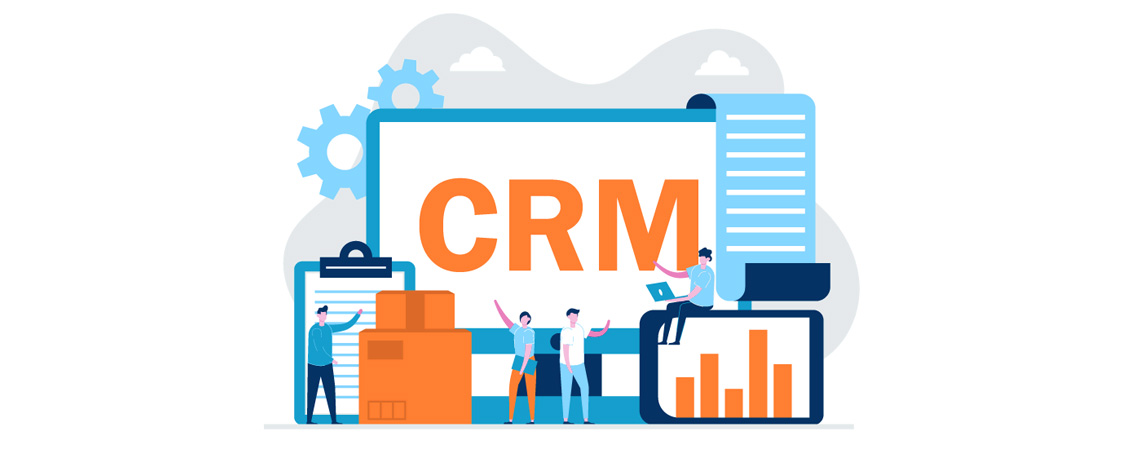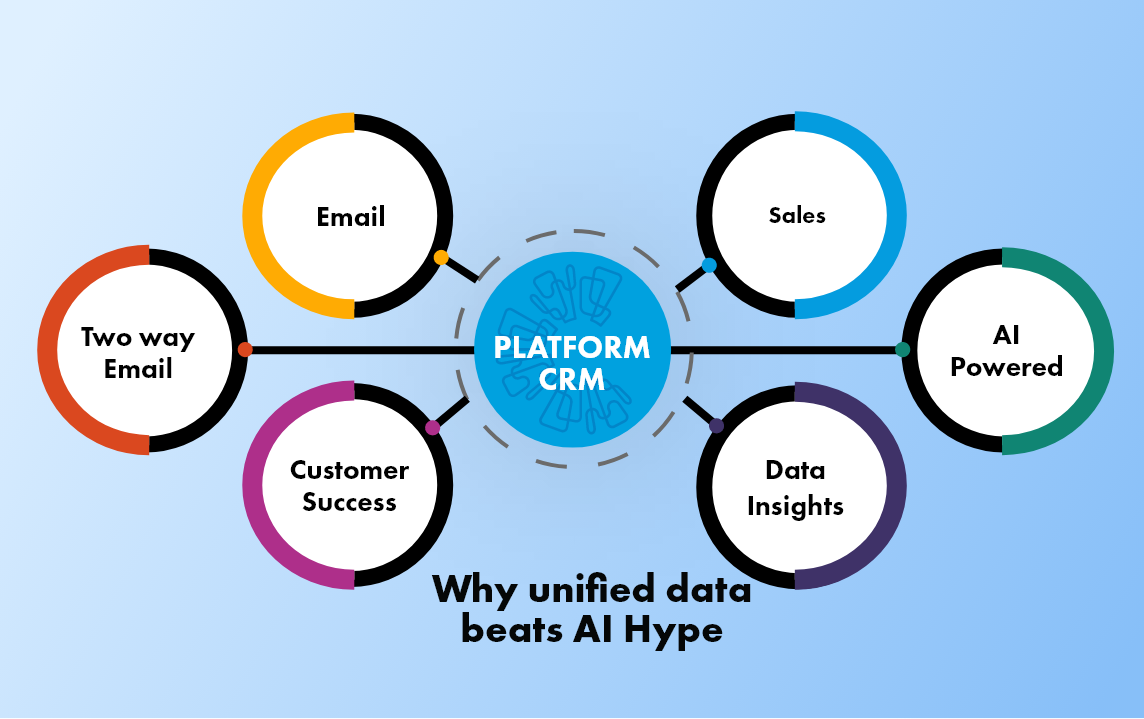
CRM
How to create a valuable CRM database
Data is a currency that many small and startup businesses have a hard time mastering, but it shouldn't have to be complex. A CRM database is essentially a store of your data about your business’s customer relationships. The sooner your company starts uploading to this database, the more value it will present to your business: you want historic, thorough, and most importantly, accurate data.
Ultimately, a well-managed CRM database will give you better business intelligence, helping you to forecast and bolster against fluctuations within the industry and meet global challenges with confidence. The nature of the CRM database makes it the ultimate flexible tool to span across departments, giving you both a company-wide and department-specific view of daily operations that helps you create smarter workflows.
Enhanced external business intelligence allows you to know and understand your customers’ purchasing habits, so you can manage a high performing sales team that works from a provably successful pipeline template, letting automations handle the routine tasks and leaving your reps to focus on building strong, trusting customer relationships. Marketing teams benefit equally, using customised email templates and customer segmentation to push your brand to the forefront of conversation with smart and tailored marketing. It also allows for flexibility; KPIs can be targeted and updated live according to custom CRM reports across your business spectrum.
Getting started
Above all, your CRM database needs to be a comprehensive store of all your company data: fully integrated with all sources of business information. Remember, your database is only as valuable as what you put into it, so the quality of data, time and financial investment should reflect the level of success you wish to achieve. A thorough CRM database is a highly sophisticated tool with multiple uses, meaning it will need to be used equally across your entire organisation’s scope. For larger companies and enterprises, this process consists of a lot of leg work, so often CRM providers will offer hands-on onboarding services and guided tutorials.
The wonderful thing about modern CRM is that most providers choose to offer their services over the Cloud, meaning there is little-to-no IT set up: saving you time and expenses on installation and maintenance. The benefits to this are multitudinous, mainly because the SaaS (software as a service) model of CRM provision allows total flexibility as your business grows and changes shape. Monthly subscription means new users, features and safety updates are made regularly. The CRM providers’ job is to keep up to date with new industry software, and strive to stay at the forefront of IT innovation, meaning they provide support and cost-effective solutions for your business, leaving you to focus on more important things.
With cloud-based CRM, simply log in to your access platform from any device, anywhere in the world, and pick up where you left off!
What tools do I need?
So how do you know which essential tools you need from your CRM? The complexity of services offered by providers is an asset once you are comfortable using them, but can seem overwhelming when you are just starting out building a value-oriented CRM database. Let’s start by thinking of the essential tasks every business does. Your CRM should ideally provide solutions to them all.
People management
First of all, you need to manage your people internally. Without this, the CRM database can be outputting valuable business information but you will not be able to enact any of its findings. People management includes things such as a shared calendar, cloud-based task management and user profiles for each of your employees.
Next, consider how contact management works. You’ve made your contact database with months, even years of relationship building. You know who they are, what their interests are, their likes and dislikes. But do all of your teams know this? Shared contacts and accounts lists with space to update conversation history, purchases and more ensures your sales and marketing activities are always relevant and engaging.
Lead management
Before customers become contacts, they are leads, so management of these fledgling accounts becomes the most vital thing a company does. CRM providers should offer a comprehensive pipeline and UX feedback so you know exactly what is generating you the most successes, keep track of ongoing leads, figure out probabilities and forecasts, and turn every potential into a win.
Sales automations
To sell better, collecting lead management data is essential. Once this information has been collected, your teams can see which methods work best, which reps are the highest performing, identify areas of drop-off, and automate repetitive pipeline tasks: leaving your sales team to focus on building excellent relationships.
Marketing automations
Collecting information on your marketing efforts is useful for the same reasons as for your sales. Your CRM provider should offer a host of marketing solutions: email marketing feedback including detailed information about engagements, bounced mail, and your CTR. Customisable mail templates ensure you can repeat successes, and data collected from your contact management helps you accurately segment your customers and personalise communications.
What good is data collection if all it produces are large spreadsheets full of data tangles and confusing numbers? A good CRM provider will include a reports or analytics feature that works with your data to generate clear, understandable reports into any specified part of your business, giving you a snapshot of your status at a glance.
Customer service
Finally, your CRM should offer a solution to one of the most complicated operations a business deals with: customer service. Ever-changing customer requirements and problems are difficult to stay on top of. Ticketing services are one way to quickly field complaints and queries to the right agent, build pre-set customer handling methods, and increase satisfaction by driving faster resolution rates.
How does the company eventually benefit?
Once data is being collected effectively across the full business scope, your CRM database can begin to output those essential reports: giving you a data-led foundation on which to enhance your automations, forecast future fluctuations, and focus on your customers. These days, where the workplace is more virtual than ever before and has no strict office spare or regular face to face communication, it is essential your people are all on the same page: working from the same data with the same, up to date KPIs.
Optimiser is a comprehensive CRM software company, providing businesses a customisable solution to their personal goals for sales, productivity, and growth. Powerful integrated modules include lead management software, a B2B sales toolkit, automated marketing suite and more for sale under a single subscription. Try Optimiser’s CRM software demo with access to the full Enterprise Licence FREE for 30 days, and find out how you can skyrocket productivity in just one month!

30 days free trial. No credit card required
 One powerful platform
One powerful platform
 Simple to use
Simple to use
 Comprehensive
Comprehensive



